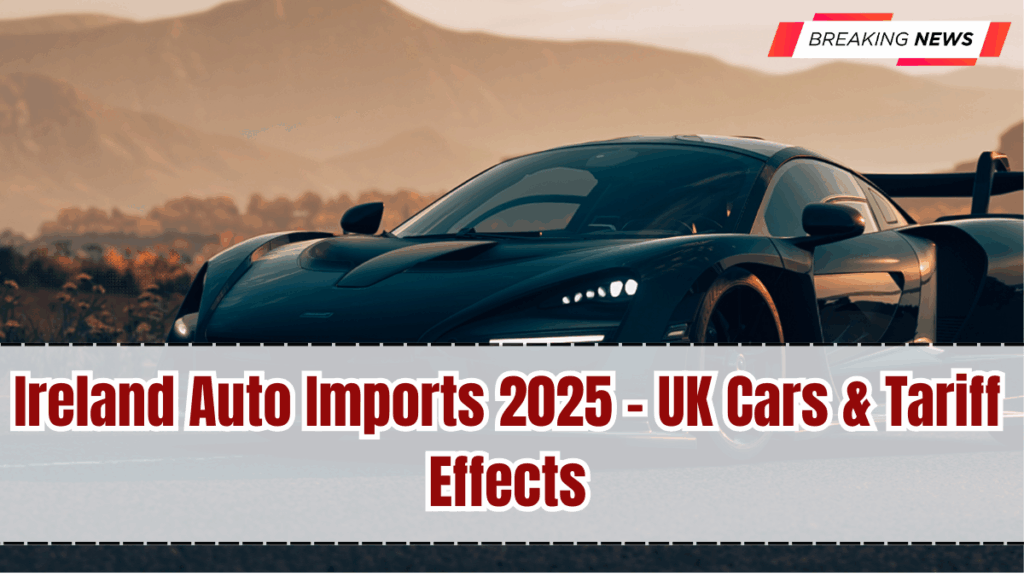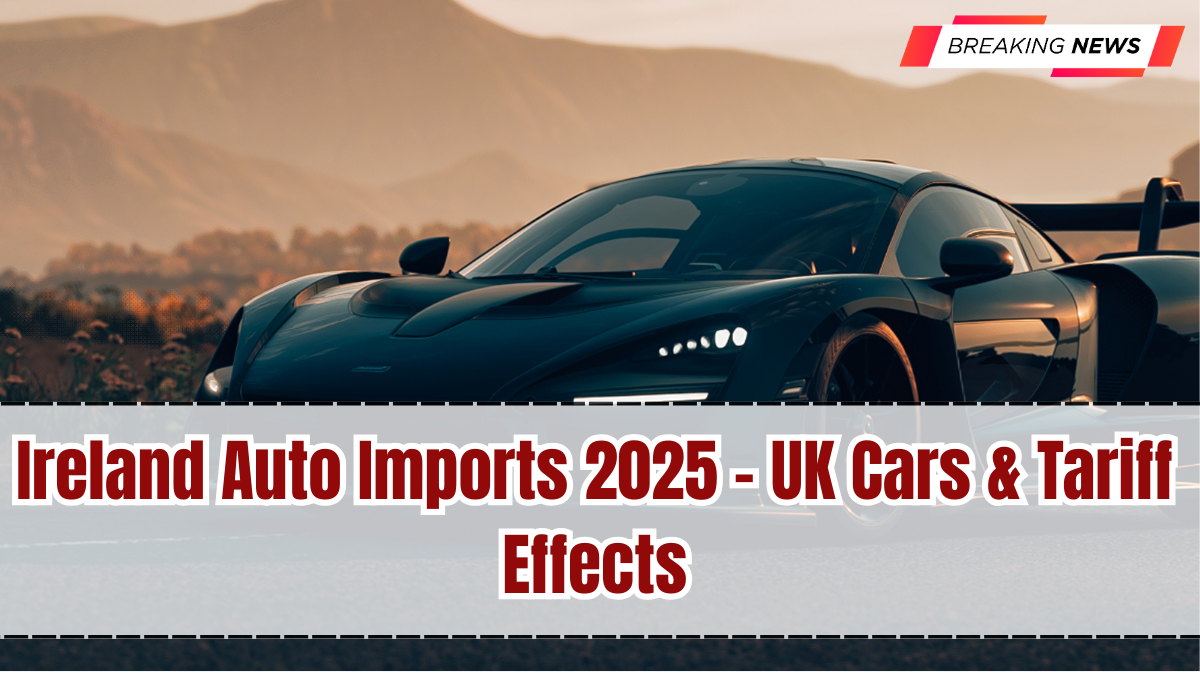The Ireland Auto Imports 2025 market is undergoing major changes as Brexit-related tariffs and customs regulations reshape the cost of bringing cars from the UK. For decades, the UK was Ireland’s biggest source of imported vehicles, but rising tariffs and new documentation requirements are testing both buyers and dealers.
While demand for UK imports remains strong due to variety and affordability, the extra costs are beginning to narrow the gap between imported and locally purchased cars. Buyers now face tough decisions—stick with UK imports or turn to domestic and EU alternatives.
So, how have tariffs changed in 2025, what do they mean for Irish drivers, and is importing still worth it?

Why Were UK Car Imports So Popular in Ireland?
For years, the UK was the go-to source for Irish buyers. Cars were generally cheaper, availability was higher, and buyers had access to a wider selection of models, particularly used cars.
The strength of the euro against the pound also made UK imports attractive, with buyers saving thousands on popular brands like Volkswagen, Ford, and Toyota. Additionally, high-quality second-hand vehicles, including luxury brands like BMW and Audi, were more abundant across the Irish Sea.
How Have Tariffs Changed in 2025?
Since Brexit, tariffs and trade agreements have shaped Ireland’s import market.
In 2025, tariffs on UK car imports remain between 10–15%, depending on vehicle category. On top of tariffs, buyers must also pay customs duties, VAT, and registration taxes, which significantly increase the final cost.
Customs checks and paperwork have added delays, making the process longer and more expensive. For many buyers, the once-clear savings on UK imports have now diminished.
What Are the Costs of Importing Cars in 2025?
Importing from the UK now involves multiple cost layers.
-
Tariffs: 10–15% added to vehicle value.
-
VAT: 23% applied on top of purchase price and tariff costs.
-
Customs charges: Fees for processing and inspections.
-
Registration tax (VRT): Based on CO2 emissions, adding further expenses.
A car that once cost €15,000 to import may now exceed €20,000 after all charges, narrowing the appeal of cross-border purchases.
Which Cars Are Still Popular Imports?
Despite higher costs, certain imports remain attractive.
-
Luxury brands like BMW, Mercedes, and Audi, where Irish retail prices are still much higher.
-
Electric and hybrid cars, which benefit from lower registration taxes.
-
Used cars under five years old, which are still cheaper than Irish dealer prices in some cases.
However, demand for older diesel cars has fallen due to higher taxes and restrictions on emissions.
How Are Dealers Adapting to Tariff Changes?
Irish dealers specializing in UK imports are adjusting strategies.
Many now focus on higher-end models where profit margins remain viable despite tariffs. Others are sourcing cars from continental Europe instead of the UK to avoid customs complications.
Some dealers have also begun offering bundled import services, handling paperwork and customs to make the process easier for buyers, even if it comes at a higher fee.
What Impact Do Tariffs Have on Buyers?
For buyers, the biggest impact is affordability. The higher costs mean that some buyers who previously imported cars are now turning to domestic dealers.
Leasing and financing have become more popular alternatives, as they spread the cost of expensive new cars over time. For middle-income buyers, the savings from importing no longer justify the hassle of tariffs and paperwork.
Are There Any Benefits to Importing in 2025?
Yes, despite challenges, importing can still make sense. Buyers looking for rare models, luxury cars, or specific trims not widely available in Ireland may still find better options in the UK.
Additionally, for EVs and hybrids, incentives and lower VRT rates offset some of the extra costs. Buyers willing to navigate paperwork can still find savings, though not as significant as in pre-Brexit years.
What Alternatives Are Emerging to UK Imports?
With tariffs reducing UK imports’ appeal, more buyers are turning to EU markets like Germany, France, and the Netherlands. These countries offer competitive pricing, advanced EV options, and smoother trade under EU agreements.
Domestic leasing and car finance options are also becoming more attractive, with dealerships offering flexible packages to keep customers from looking abroad.
Conclusion
The Ireland Auto Imports 2025 market is shifting as Brexit tariffs and costs reshape buying decisions. While UK imports were once the default choice, extra fees now limit their appeal. Luxury cars, hybrids, and EVs remain worth importing, but mainstream models are increasingly sourced locally or from EU partners.
For Irish drivers, the decision to import now requires more careful calculation. With financing and domestic alternatives growing, 2025 marks a new era where importing is no longer the cheapest or simplest option—but still a valuable path for select buyers.
FAQs
Why were UK car imports popular in Ireland?
Because they offered cheaper prices, wider selection, and strong euro–pound advantages.
How high are tariffs on UK imports in 2025?
Between 10–15%, plus VAT, customs duties, and registration taxes.
Which cars are still worth importing?
Luxury models, hybrids, and EVs, where Irish retail prices remain higher.
Are Irish buyers shifting away from UK imports?
Yes, many are choosing domestic and EU cars due to rising costs and delays.
What alternatives exist to UK imports?
Imports from Germany, France, and the Netherlands, plus local leasing options.
Click here to know more.
